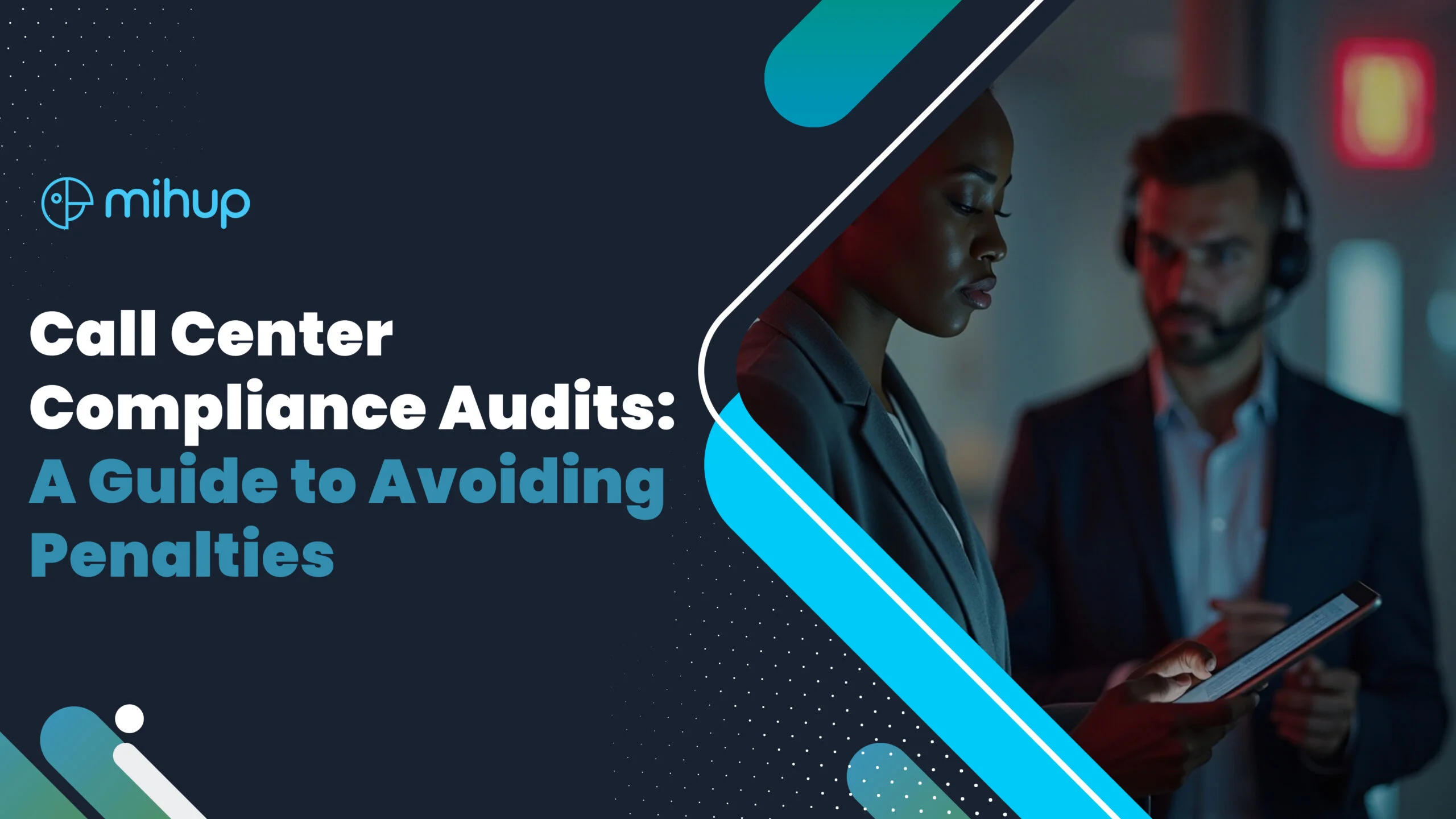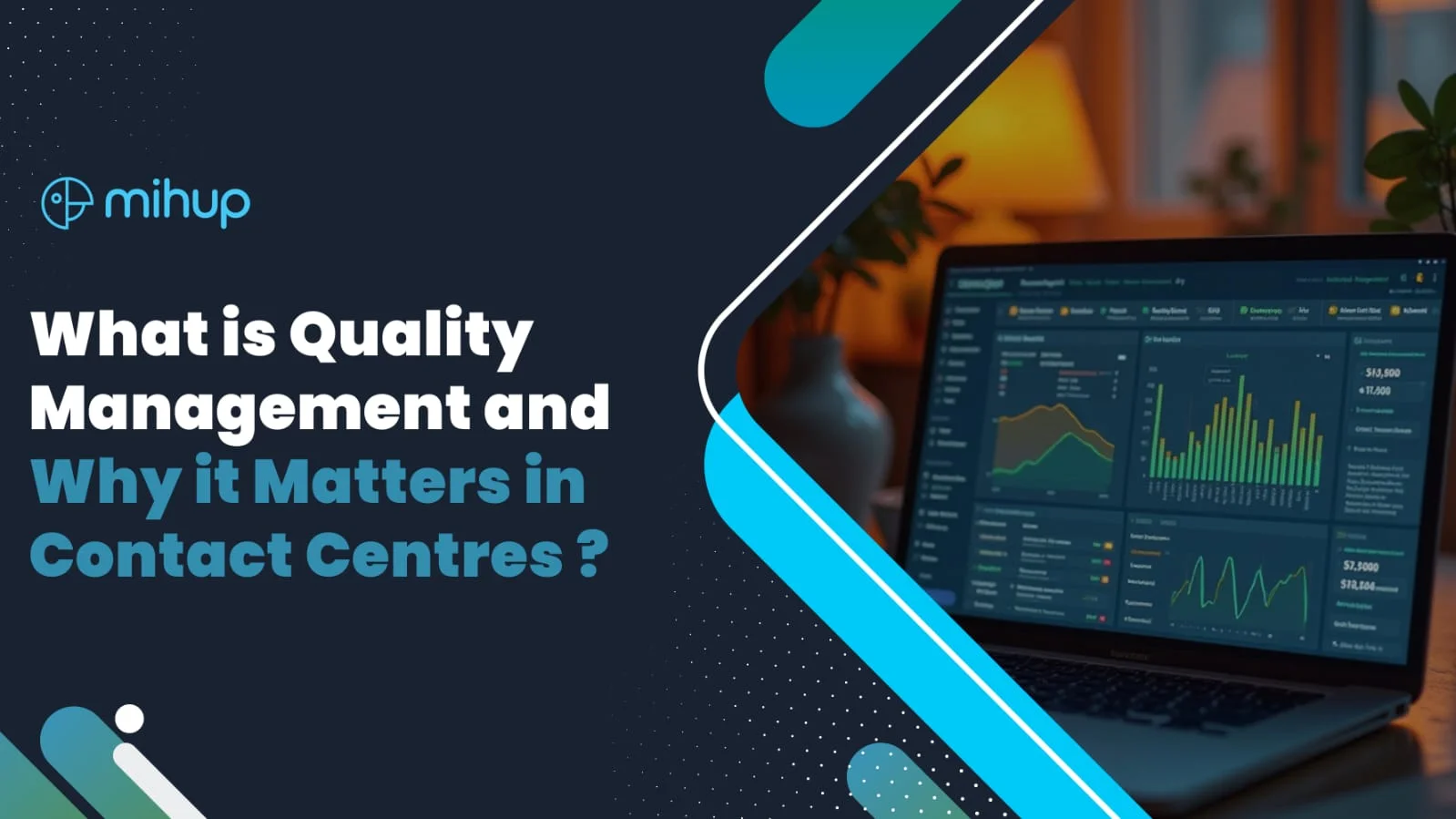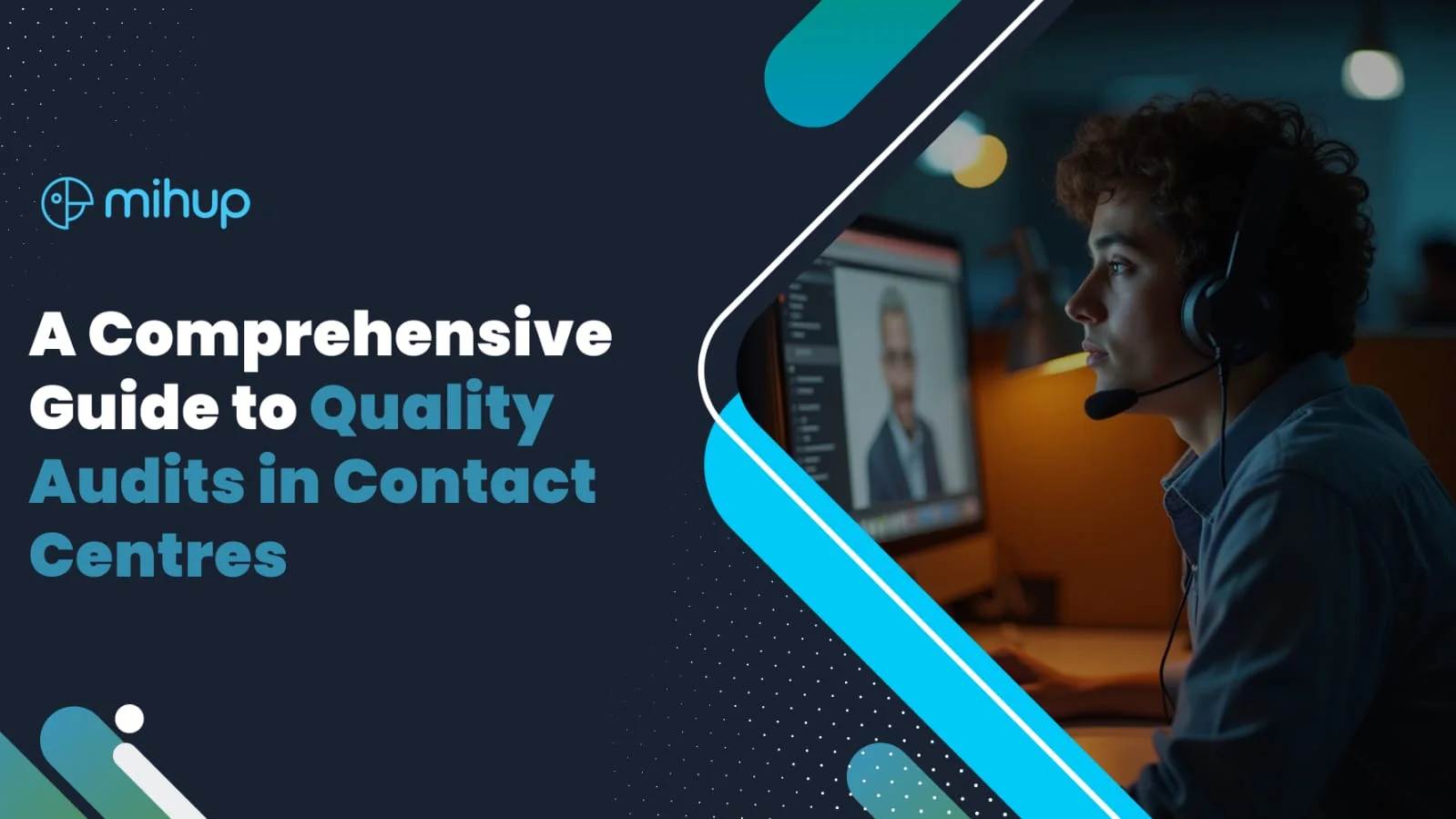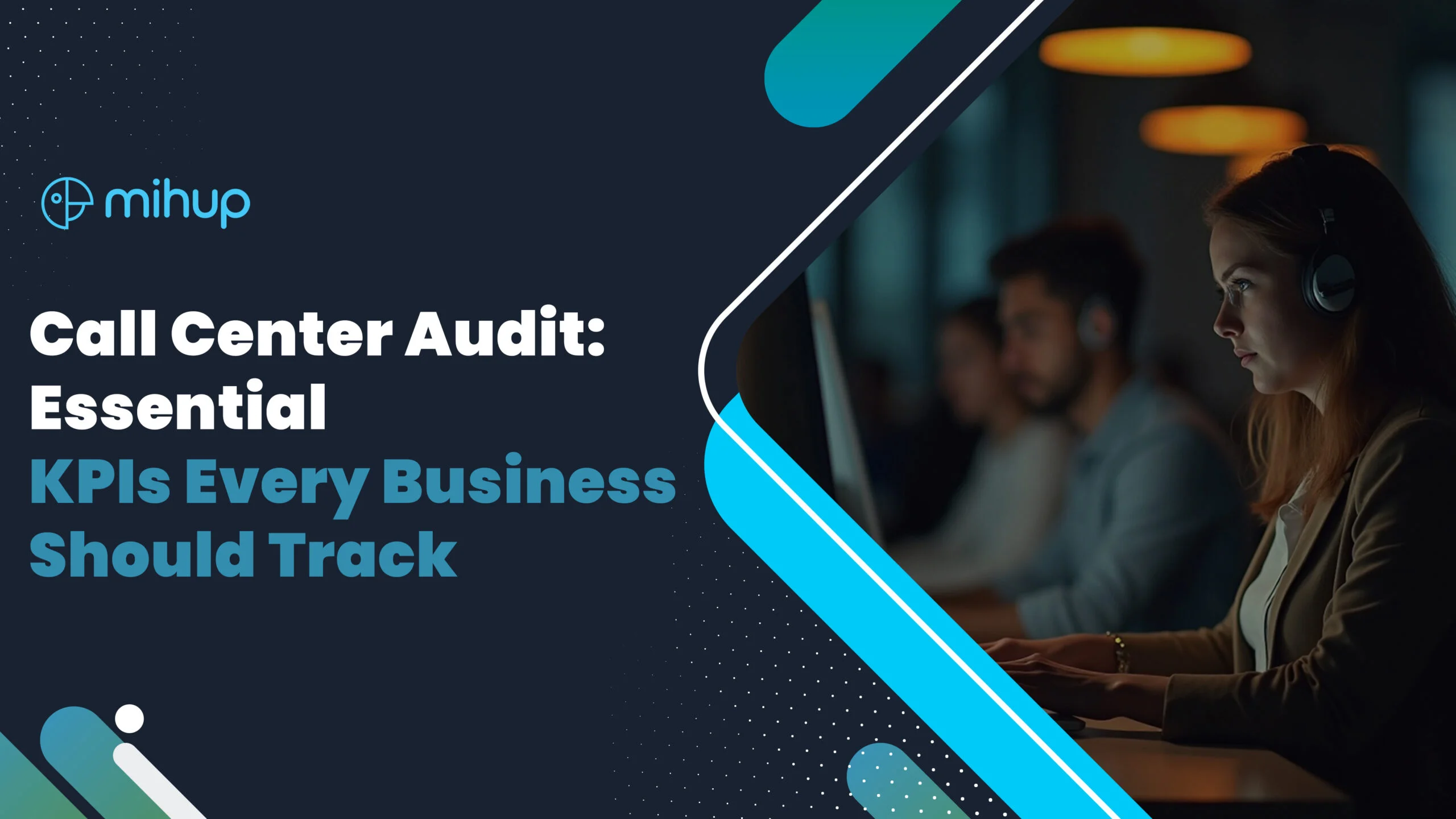Running a call center today means navigating through complex regulations. Every conversation has the potential for mistakes that could lead to expensive fines and harm your reputation. That’s where call center compliance audits come in handy.
These audits are thorough checks of your call center’s compliance with rules, internal policies, and industry standards. They act as a quality control measure, spotting issues before they turn into expensive violations.
The rules governing call centers have become much stricter. Laws regarding data protection and consumer privacy are adding to the compliance burden each year. Just one violation can result in fines amounting to millions of dollars, making strong compliance programs essential.
Consider these statistics:
- 76% of call centers report increased regulatory scrutiny in the past year
- The average cost of non-compliance is 2.71 times higher than maintaining compliance
- TCPA violations can result in penalties of $500 to $1,500 per call
This guide will explain the main regulations that impact call centers, uncover the real cost of non-compliance, and provide effective strategies for successful compliance audits.
Understanding Call Center Compliance Audits
A call center compliance audit is a process that identifies operational inconsistencies, assesses regulatory risks, and ensures compliance with established standards. Compliance auditing involves reviewing call recordings as well as related documentation, treatment of data (if applicable), and agent performance comparison with a variety of regulations.
Key Regulatory Frameworks for Call Centers
The regulatory landscape governing call centers includes several critical frameworks:
- TCPA (Telephone Consumer Protection Act) specifically limits telemarketing calls, auto-dialers, and text messages
- HIPAA (Health Insurance Portability and Accountability Act) protects sensitive health information
- PCI DSS (Payment Card Industry Data Security Standard) Safeguards credit card data processing
- DNC (Do Not Call) Registry Restricts outbound calls to consumers who have registered
- FDCPA (Fair Debt Collection Practices Act) establishes standards for debt collection practices
- GLBA (Gramm-Leach-bliley Act) ensures financial data privacy and security
Industry-Specific Standards
Many industry specific standards influence compliance requirements. Call centers that provide financial services are required to undertake substantial verification protocols, while some healthcare call centers have varying levels of privacy protocols in place. Independent of the baseline legal requirements, some industry standards will or may undertake several best practices, if not exceeding consumer’s expectations.
What Do Audits Examine?
A comprehensive audit examines:
- Agent script compliance and disclosure statements
- Call recording and storage practices
- Data encryption and access controls
- Customer consent documentation
- Quality assurance protocols
- Training program effectiveness
Key Regulations Impacting Call Center Compliance
Call centers must navigate a complex web of regulations that directly affect their daily operations. Let’s examine the specific requirements and compliance measures for each major regulation:
1. TCPA (Telephone Consumer Protection Act)
The TCPA regulates telemarketing calls, including the use of automated dialing systems and prerecorded voice messages.
- Requires explicit written consent before making automated calls or texts
- Mandates maintaining accurate consent records
- Restricts calling times to between 8 AM and 9 PM local time
- Potential fines: $500-$1,500 per violation
2. HIPAA (Health Insurance Portability and Accountability Act)
HIPAA sets standards for protecting sensitive patient information in the healthcare industry.
- Requires secure handling of protected health information (PHI)
- Demands encrypted data transmission
- Necessitates strict access controls for patient data
- Violations can result in fines up to $50,000 per incident
3. PCI DSS (Payment Card Industry Data Security Standard)
PCI DSS establishes security requirements for organizations that handle credit card transactions.
- Prohibits storing sensitive card data
- Requires secure payment processing environments
- Mandates regular security assessments
- Non-compliance can lead to heavy fines and loss of processing privileges
4. DNC (Do Not Call) Registry
The DNC Registry allows consumers to opt out of receiving telemarketing calls.
- Requires regular registry updates
- Demands immediate removal of listed numbers
- Necessitates maintaining internal DNC lists
- Violations can incur fines up to $43,792 per call
Consequences of Non-Compliance in Call Centers
Non-compliance in call centers can have significant after-effects that could damage a company’s operational activities and may result in the business being unsustainable.
Financial Penalties
Regulators levy extensive fines on the company – the amounts range from thousands to even millions of dollars – based on severity and recurrence of violation. A single instance of TCPA violation can bring about the imposition of fines of $500 and up to $1,500 for each occurrence.
Legal Ramifications
The legal implications go far beyond the mere fees and fines. Call centers find themselves in class-actions, enforcement, and mandatory rectification procedures. Such legal skirmishes strip companies of their resources and refocus them away from the main business operations.
Damage to Business Relationships
The adverse effects of non-compliance are even felt outside the boundaries of the business itself as customers are in the middle. When data breaches or privacy violations are made public, customers’ trust evaporates. Besides, business partners may decide to distance themselves to safeguard their own concerns, consequently, agreements are terminated and a lot of business deals are gone.
Operational Disruptions
Non-compliance not only could lead to operational stress during the compliance audits, but there is also the contingency of a business’s day-to-day activities being interrupted due to the investigation, as well as a company’s increased need for more elaborate monitoring due to the resource and retraining required for the remediation process.
Best Practices for Ensuring Compliance Through Audits
Let’s explore proven strategies that call centers can implement to maintain robust compliance standards through effective auditing practices.
1. Regular Internal Audits
Internal audits serve as your first line of defense against compliance violations. Schedule monthly or quarterly reviews to examine call recordings, documentation, and agent performance. These assessments help identify potential compliance gaps before they escalate into serious issues.
2. Tailored Compliance Policies
Your compliance framework should reflect your organization’s unique operational needs. Create clear, documented procedures that address data handling protocols, customer interaction guidelines, record-keeping requirements, privacy protection measures, and payment processing standards.
3. Comprehensive Training Programs
Empower your agents with knowledge through structured training initiatives, including initial compliance orientation for new hires, regular refresher sessions on regulatory updates, role-playing exercises for common compliance scenarios, and personalized coaching based on audit findings.
4. Technology Integration
Modern compliance management demands sophisticated tools. Implement real-time call monitoring systems to flag potential violations, automated quality assurance platforms for consistent evaluation, speech analytics software to identify compliance-related keywords, and secure recording solutions for sensitive customer data.
Challenges Faced by Modern Call Centers in Maintaining Compliance
Modern call centers face significant challenges in maintaining compliance while operating efficiently. With thousands of daily interactions, quality assurance teams struggle to monitor everything effectively.
High-Volume Management Challenges
Real-time compliance monitoring becomes increasingly complex when hundreds or thousands of conversations happen simultaneously. Traditional manual sampling methods often miss critical compliance issues, and quality assurance teams struggle to provide timely feedback on compliance violations.
Multi-Jurisdictional Compliance Complexity
Call centers operating in multiple regions must navigate varying state and international regulations, understand unique requirements for data protection standards, respect consumer privacy rights, comply with recording consent laws, and meet specific documentation requirements. This complexity requires advanced systems that can automatically route calls and apply appropriate compliance protocols based on caller location.
Leveraging AI Technology for Enhanced Compliance Management in Call Centers
AI-powered systems have transformed how call centers manage compliance. These smart solutions analyze every customer interaction in real-time, providing unprecedented visibility into compliance adherence.
Transforming the Audit Process
Modern platforms are changing traditional audit processes through automated speech analysis using advanced speech recognition and natural language processing, risk pattern detection that spots potential compliance risks before they become violations, and 100% coverage analyzing every interaction instead of random sampling.
Proactive Compliance Management
AI benefits extend to proactive compliance management through real-time prompts for agents on compliance-sensitive topics, automatic removal of sensitive information from recordings, and immediate identification of non-compliant language or actions. These features create strong defenses against compliance violations while maintaining operational efficiency.
Conclusion
Regulatory compliance in the call center is not just the legal aspect, it is also a key factor in business that determines how successful and profitable businesses will be due to customer relationships A strong compliance system protects private data and also, at the same time, creates a sense of trust with customers and stakeholders.
Smart investments in the right tools and technologies can turn compliance from a hurdle into a competitive edge. Call center leaders who see compliance audits as improvement opportunities set their organizations up for enhanced risk management capabilities, strengthened data security measures, improved operational efficiency, greater customer confidence, and reduced exposure to penalties.
The journey to maintaining solid compliance doesn’t have to be daunting when you have the right strategy and tools in place.





